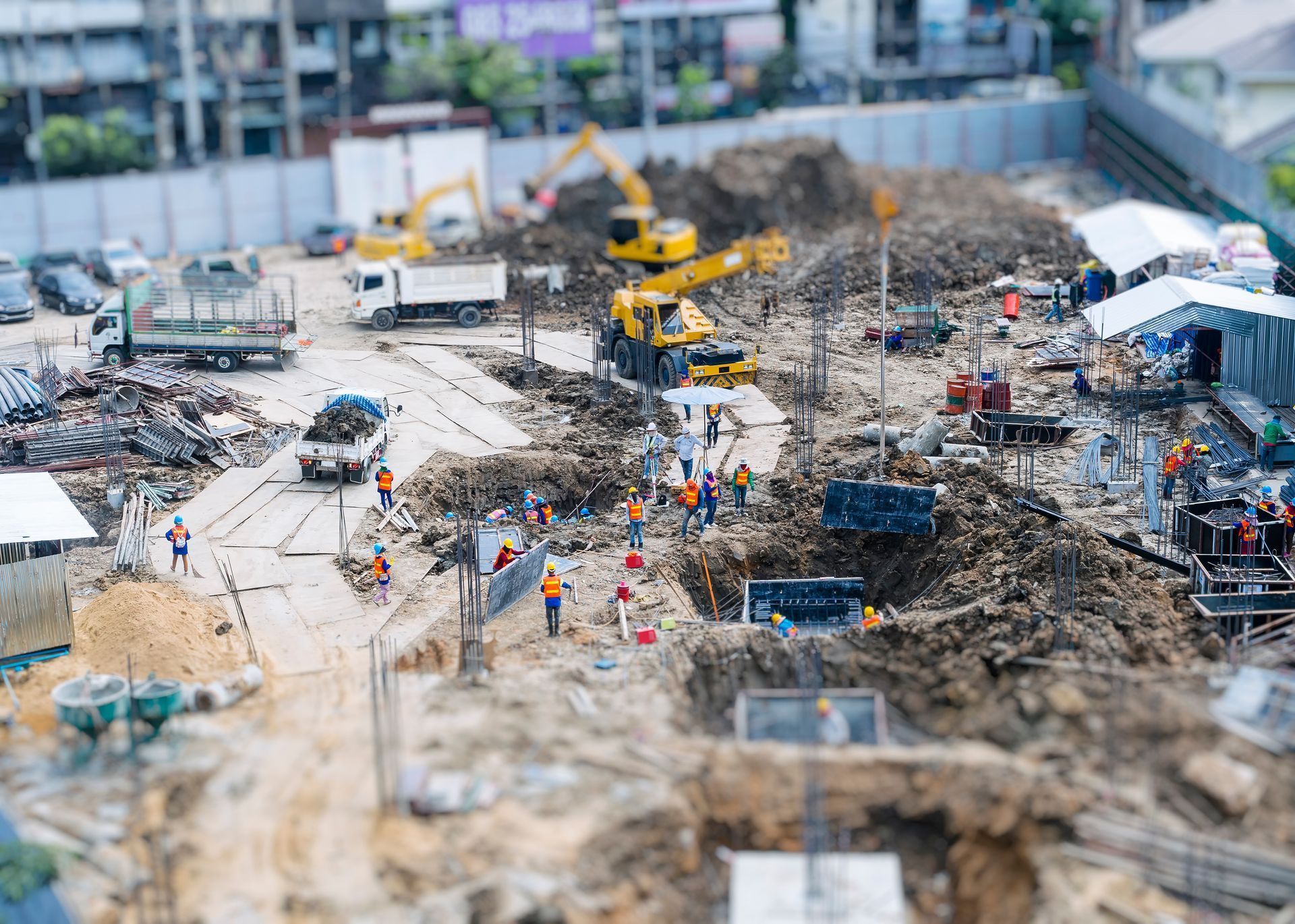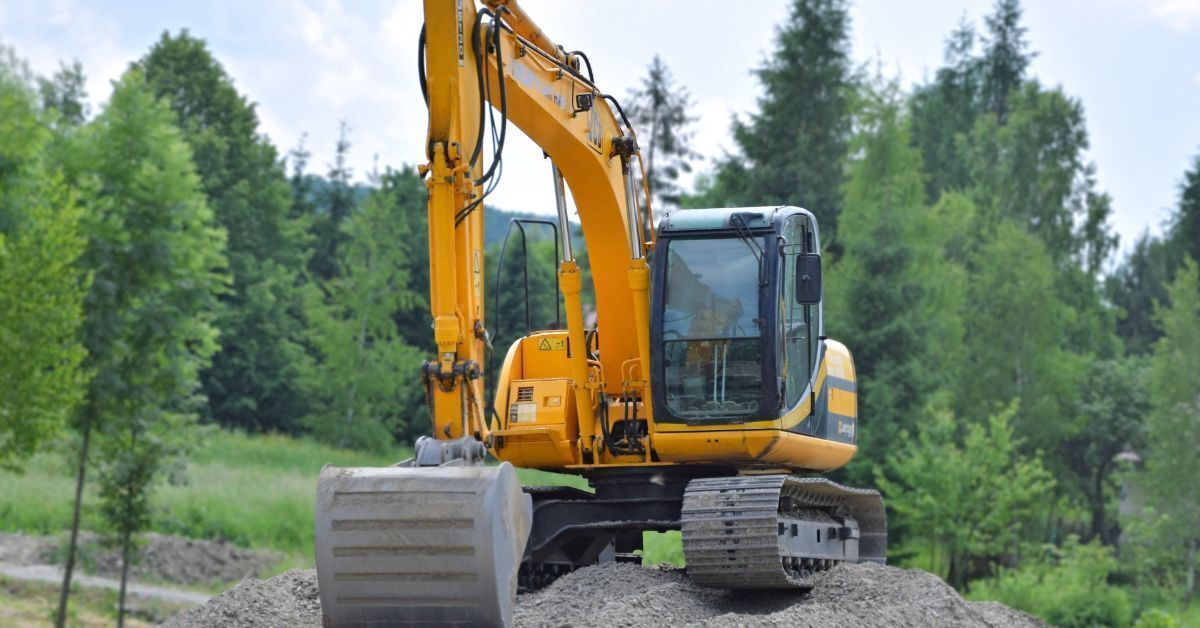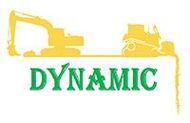The Future of Commercial Excavation: Industry Trends and Predictions
As the world modernizes and technology advances, it’s important to understand how these developments will shape the future of commercial excavation. From autonomous machinery to increased safety regulations, this article will explore potential industry trends and predictions for what lies ahead in the excavation sector. We’ll also discuss new ways businesses can take advantage of these changes and stay ahead of the curve. By understanding how technological advances and other industry trends are likely to shape commercial excavation, businesses can plan for a successful future. Read on for more insight into what’s in store for this dynamic sector.
The world is constantly progressing and advancing in technology, which has led to many industries experiencing rapid changes. The excavation sector is no exception, and businesses need to stay ahead of the curve if they plan on staying competitive. In this article, we’ll explore some of the potential trends and predictions that could shape commercial excavation in the years to come. From new safety regulations to autonomous machinery, understanding what lies ahead can help businesses better prepare for a successful future. Read on for a closer look at the exciting possibilities that may be just around the corner.
1. Increase in Technology Adoption
As one of the oldest industries, commercial excavation is accelerating its adoption rate of new technologies. There has been a significant increase in the use of sensors and robotics in larger excavation projects that require precision and accuracy, such as construction sites and road repairs.
The use of real-time data gathered by these technological advancements can give project owners greater insights into project results. By leveraging these innovative tools, supervisors can stay on top of production goals while ensuring safety with fewer man-hours onsite. Infrastructure projects are taking advantage of remote-controlled equipment through Artificial Intelligence (AI) to maximize output efficiency with less risk.
Autonomous mining equipment guided by AI is becoming increasingly popular due to cost savings, fewer personnel needs, and the ability to work in hazardous areas easily accessible by machines. The future looks very promising for technology-driven solutions where commercial excavation will become even more precise.
2. More Automation & Remote Monitoring
The future of commercial excavation is likely to involve a significant increase in automation and remote monitoring, with the benefits of improved safety, efficiency, and reliability. Automation can help reduce fatigue and stress on operators, as well as reduce potential injuries due to overexertion or error.
Remote monitoring also provides an opportunity for businesses to maximize productivity by giving necessary information quickly to supervisors regarding tasks that need to be completed or should be avoided altogether. Additionally, automated excavation systems can improve accuracy by collecting data from multiple sources and storing it, making it easier for personnel responsible for completing jobs correctly.
Recent advancements in technology have enabled excavators to perform multiple functions simultaneously, reducing user input and increasing productivity significantly. Ultimately, the trends surrounding automation and remote monitoring are expected to revolutionize the excavation industry in unprecedented ways.
3. Adapting to Increasingly Complex Projects
The future of commercial excavation is uncertain, but trends suggest that increasingly complex and large-scale projects are on the horizon. Businesses within this industry will need to develop strategies to remain competitive while responding to the ever-changing demands of their clients.
To do this, they must stay abreast of evolving technologies and be willing to invest in continued professional development to stay ahead in an industry where quality work has become a basic expectation. They should also expect to deliver highly customized solutions tailored to project specifications and adapted for varying customer preferences.
With demanding deadlines looming on the horizon, there's never a better time than now for excavation businesses to get adequately prepared for a shift toward more complex projects.
4. Data-Driven Decision Making
In the age of constant technological innovation, data-driven decision-making is becoming increasingly crucial for commercial excavation industries. With the rising availability of big data and machine learning capabilities, forecasting and analysis of the industry’s trends could be further developed and improved.
As a result, companies will be able to better anticipate market fluctuations, reduce operational expenditures and capitalize on profit opportunities. Despite data being present in all industries nowadays, more insights can still be generated by leveraging available datasets to accurately assess market movements.
Being ahead in data-driven decision-making gives businesses various advantages that cannot be achieved through traditional methods of research and analytics.
5. Improved Efficiency and Cost Reduction
The future of commercial excavation is set to be as dynamic and groundbreaking as the industry has been in the past. With improved efficiency and cost reduction at the forefront, companies are looking to new technologies to stay ahead of the competition.
By utilizing automation, bots, remote sensors, and drones for task management, companies can expect quicker deployment times and fewer errors, which translates into more profitability. This technology also opens up possibilities for faster project completion due to greater accuracy with fewer delays caused by human error.
Increased safety on job sites becomes a priority with these technologies in place due to better error detection. In addition to advancements in technology, smarter negotiations on contracts between businesses will translate into lower costs while still delivering quality results. Companies who embrace trends of improved efficiency and cost reductions are certainly well equipped for whatever challenges lie ahead, allowing them to stay one step ahead of their competition.
6. More Incentives and Rewards Programs for Employees
The trend of offering more incentives and rewards to employees in the excavation industry is an upcoming one that seems likely to become more established in the future. Companies are increasingly recognizing the value of making their employees feel properly valued and incentivized, not just with financial benefits but also with rewards such as additional breaks, flexible scheduling, career development, recognition awards, and various appreciation programs.
Such offerings motivate employees and contribute to employee retention too, which is essential for any successful business. Incentives and rewards programs also improve the mental well-being of employees who have fewer financial worries due to salary increments or bonuses, which can help boost overall morale and productivity in the long run.
7. Greater Focus on Safety Regulations
The excavating industry is expanding and the future of commercial excavation depends on safe operations. Companies will be placing a greater emphasis on safety regulations, making sure tanks and crews are properly trained in hazardous materials.
Contractors and builders must ensure they are up to date in their knowledge of local permitting requirements, water source protection regulations, and relevant standard operating procedures. As a result of increased safety regulations, job sites will become consistent with high standards and quality.
This will not only protect workers but also protect the environment by reducing the risk of accidents or contamination that could potentially occur at an excavation site. Safety is key for successful excavation projects, both now and in the future.
8. Greener Solutions Utilizing Sustainable Practices
Commercial excavation is an important industry, and sustainability has recently become a top priority for many businesses. As a result, excavation projects must now adhere to increasingly strict environmental regulations that focus on greener solutions.
To address these new standards, many commercial excavation projects are starting to rely more heavily on sustainable practices. This often involves using energy-efficient equipment like electric bulldozers instead of diesel models or leveraging soil screens and permeable surfaces to reduce runoff when digging.
Many companies are investing in recycling initiatives that can be used to repurpose excavated material instead of disposing of everything in landfills. All of these efforts ultimately help the industry operate more responsibly and help ensure we have a sustainable future.
As the excavation industry continues to evolve, it's important for businesses in this sector to stay ahead of the curve and be prepared for the future. With technological advancements such as autonomous machinery, remote monitoring, data-driven decision-making, and greener solutions utilizing sustainable practices on the horizon, there are many exciting possibilities that can help businesses succeed. By understanding these industry trends and predictions, companies can plan for a successful future and remain competitive. With this knowledge, commercial excavation businesses can make the most of their operations and ensure they are ready to face whatever lies ahead.
Ready to get started on your commercial excavation project? Look no further than Dynamic Earth Solutions, the industry leader in safe and reliable excavation services. Our team of experienced professionals is here to ensure that your project meets all safety regulations while maximizing efficiency and cost reduction. We use the latest technologies to provide data-driven solutions tailored specifically to fit your needs. Contact us today for a free estimate and get started on your project with
Dynamic Earth Solutions. Call 405-446-6327 now to experience the highest quality services in the industry. We look forward to hearing from you!












